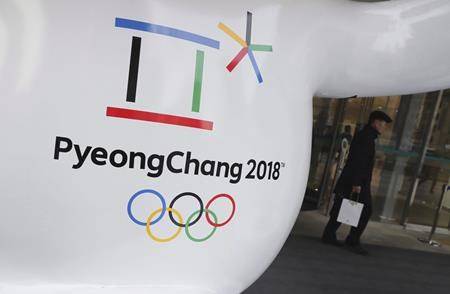Climate change could turn out to be the Winter Olympics’ biggest spoil sport.
An updated research study led by geography professor Daniel Scott at the University of Waterloo says the number of places that will be cold enough to host the Winter Olympics is dropping.
The average temperature during the seven Winter Olympics held prior to 1960 was 0.4 C. At the 11 Games held between 1960 and 2000 it was 3.1 C. In the four Games held this century it was 7.8 C.
READ MORE: BCHL alumni named to Canadian men’s Olympic hockey roster
The trend is partly because the International Olympic Committee is picking warmer places to host. Sochi, Russia, which staged the last Games in 2014, is a subtropical resort town where Russians go to escape winter. Vancouver, which hosted in 2010, is second only to nearby Victoria as the warmest place in Canada in winter.
But even so, every one of the 19 cities that hosted the Games prior to this year is warmer in the winter now than it was when they hosted, said Scott.
By midcentury, global warming will mean only 11 of them will still be cold enough to reliably host the Games again. By the end of this century, that number will drop to eight.
In Canada, Calgary and Edmonton are realistically the last ones standing as cold enough options for future Winter Olympics. Calgary is working on a bid for the 2026 Games now.
Quebec City, which considered bidding for 2026, abandoned the idea because it doesn’t have a nearby mountain big enough to host the downhill events. Attempts to partner with places that do like Calgary or Lake Placid, N.Y., quickly failed.
Vancouver already had warm weather woes in 2010 and had to bring in snow from the B.C. interior by helicopter for the snowboarding events. By 2080, Scott’s study says, the average daily temperature there will be 4 C higher.
The good news is Pyeongchang, South Korea, which will host the 23rd Winter Games next month, is on the list of 11 cities still cold enough to host, which should leave athletes competing next month far happier than they were among the slushy ice and bare mountains four years ago in Sochi.
In fact, Pyeongchang organizers were fretting last month it may even be too cold, worrying a predicted temperature of -14 C for opening night will keep people away from the first opening ceremony to be held in an outdoor stadium since Lillehammer in 1994. Organizers are prepared with blankets and hot packs to give the 35,000 spectators and VIPs expected.
But even Pyeongchang, billed as the coldest place on earth at its altitude of 700 metres above sea level, has to rely on man-made elements to pull the Games off, said Scott. The region has experienced a number of drier than normal years in the last decade and a half, and expects to have to make snow to keep some of the alpine and nordic events going.
“They have really good temperatures for both making the snow and maintaining that snow pack so that shouldn’t be a problem at all,” said Scott. “It just may not be the nice aesthetic white fluffy snow.”
Scott said he did the initial research on Winter Games before the Sochi Olympics as a way to engage people in the climate change conversation.
“You have to make it relevant to what people care about,” he said.
Scott said beyond just hosting the Games, a warming planet is also diminishing the number of reliable places for winter athletes to train, especially in the off-season. Canada’s skicross team cancelled plans for summer training in Italy last August after a heat wave closed the glacier area to summer skiing for the first time in 90 years.
Mia Rabson, The Canadian Press



